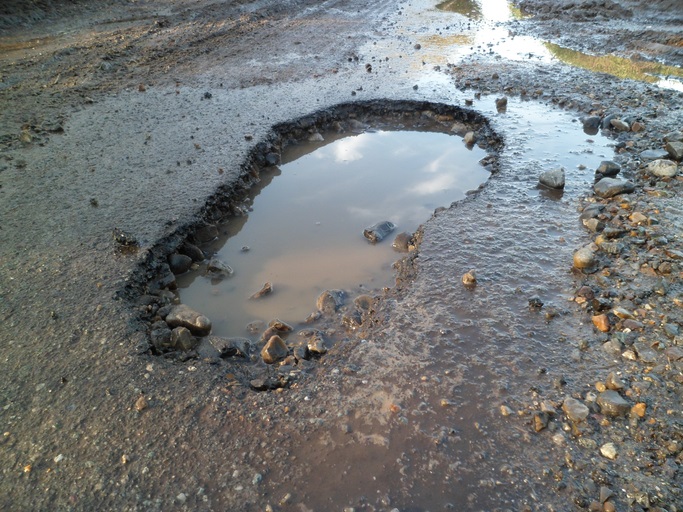
Wiltshire pothole pilot considers drones and digital twins | UKAuthority
Drones, digital twin models and smart video have been proposed as technologies that can be used to tackle potholes, in a Department for Transport supported pilot aiming to encourage smaller, innovative suppliers to bid for local highways work.
The department’s digital intelligent brokerage project pilot, run with Wiltshire Council, saw potential suppliers submitting ideas on how potholes could be spotted and repaired, in a process designed to be efficient for small organisations. Submissions were screened and reviewed by project management and consultancy Atkins. The pilot generated 102 different approaches with nearly two-thirds coming from outside the transport sector and 86% from enterprises with fewer than 20 staff.
The project resulted in a shortlist of six potential pilots for Wiltshire Council. One, from an international consortium of potential suppliers that have experience working for the Ministry of Defence, proposed the use of automated drones for highway inspections. The report noted however that such work would have to consider the risks of using automated equipment on or above a live highway network.
Another organisation, based in south-west England near Wiltshire, proposed the use of a digital twin model which would use data from multiple sources to collect, manage and visualise data on the council’s infrastructure.
A further potential supplier proposed the use of a smart video mobile app to record safety inspections, pothole identification and to monitor the delivery of maintenance. Members of the Atkins project team have met staff from Wiltshire Council to discuss potential development and implementation of pilots based on these ideas.
The department’s digital intelligent brokerage project pilot, run with Wiltshire Council, saw potential suppliers submitting ideas on how potholes could be spotted and repaired, in a process designed to be efficient for small organisations. Submissions were screened and reviewed by project management and consultancy Atkins. The pilot generated 102 different approaches with nearly two-thirds coming from outside the transport sector and 86% from enterprises with fewer than 20 staff.
The project resulted in a shortlist of six potential pilots for Wiltshire Council. One, from an international consortium of potential suppliers that have experience working for the Ministry of Defence, proposed the use of automated drones for highway inspections. The report noted however that such work would have to consider the risks of using automated equipment on or above a live highway network.
Another organisation, based in south-west England near Wiltshire, proposed the use of a digital twin model which would use data from multiple sources to collect, manage and visualise data on the council’s infrastructure.
A further potential supplier proposed the use of a smart video mobile app to record safety inspections, pothole identification and to monitor the delivery of maintenance. Members of the Atkins project team have met staff from Wiltshire Council to discuss potential development and implementation of pilots based on these ideas.
www.ukauthority.com



